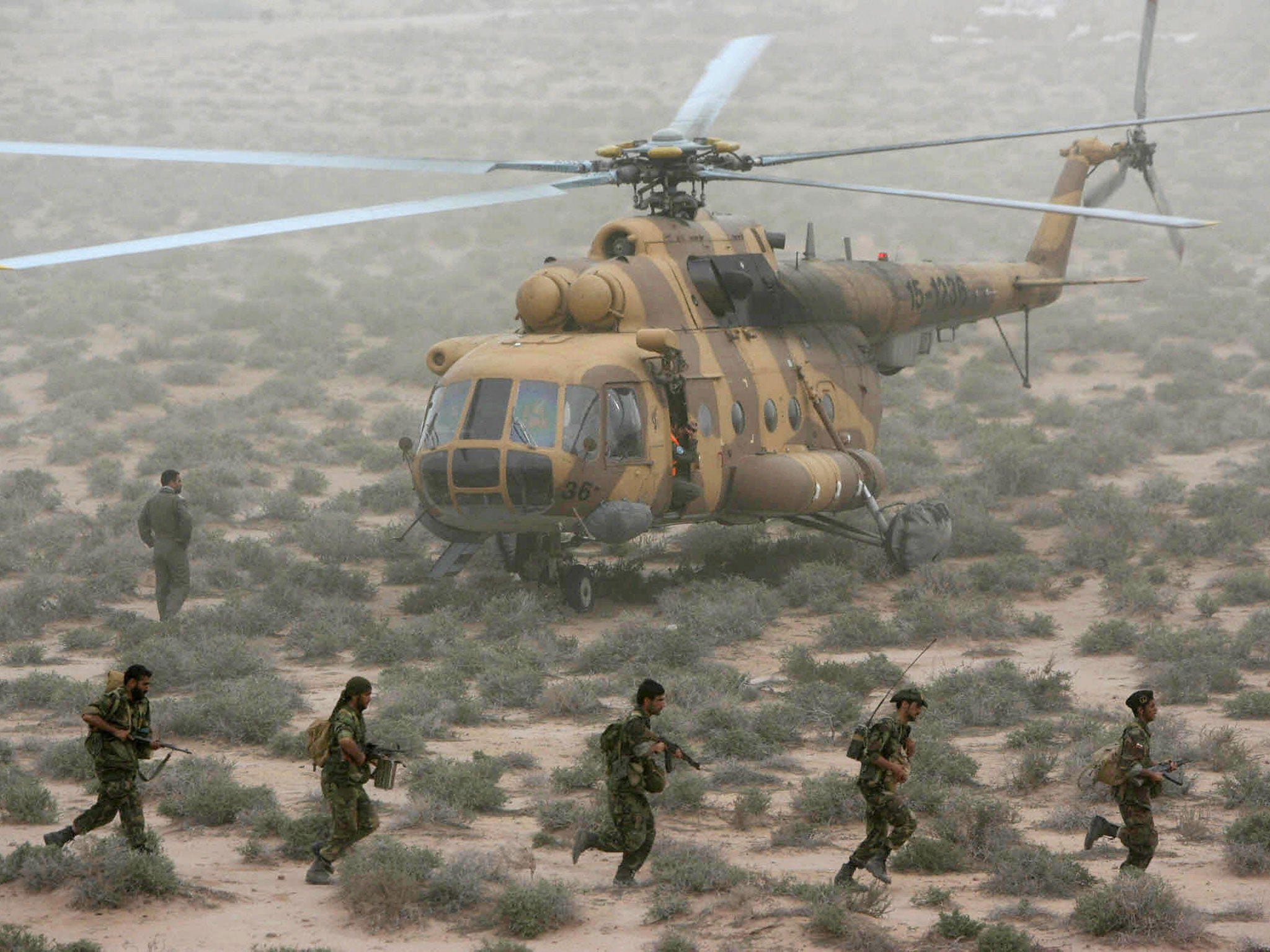Iranian Revolutionary Guards opposite Israeli troops on 1967 ceasefire line in Golan Heights as tensions mount
Benjamin Netanyahu tells Vladimir Putin 'Iranian proxies' must be removed from Syria

Your support helps us to tell the story
From reproductive rights to climate change to Big Tech, The Independent is on the ground when the story is developing. Whether it's investigating the financials of Elon Musk's pro-Trump PAC or producing our latest documentary, 'The A Word', which shines a light on the American women fighting for reproductive rights, we know how important it is to parse out the facts from the messaging.
At such a critical moment in US history, we need reporters on the ground. Your donation allows us to keep sending journalists to speak to both sides of the story.
The Independent is trusted by Americans across the entire political spectrum. And unlike many other quality news outlets, we choose not to lock Americans out of our reporting and analysis with paywalls. We believe quality journalism should be available to everyone, paid for by those who can afford it.
Your support makes all the difference.Benjamin Netanyahu has accused Iran of using the Syrian civil war to “gain a foothold to fight Israel” amid fears over Iranian troops stationed along the border with the occupied Golan Heights.
Tehran is supporting Bashar al-Assad with deployments of the Revolutionary Guards (IRGC), Basij militia and funding to allied militias including Hezbollah.
The IRGC are now reported to be present in Syrian-government controlled territory along the 1967 ceasefire line in the Golan Heights, which has seen months of Israeli air strikes met with rockets fired towards the Israel Defence Forces (IDF).
Brigadier General Mohammad-Reza Naghdi, a commander in Iran’s Basij force, was pictured surveying the border, while a Shia paramilitary group has formed a “Golan Liberation Brigade”.
Harakat Hezbollah al-Nujaba, an Iraqi force backed by Iran, is “ready to take action to liberate Golan” from Israeli occupation, according to spokesman quoted by Iranian state media this week.
The deployments have made the Iranian government a major power broker in the Syrian civil war, meeting with Russian and Turkish representatives at ceasefire talks in Astana, Kazakhstan.
In a meeting with Vladimir Putin on Thursday, the Israeli Prime Minister said that any truce must not allow the continued presence of Iranian forces in Syria.
“We do not want to see Shia Islamic terrorism led by Iran step in to replace Sunni Islamic terrorism,” Mr Netanyahu told the Russian President.
“Iran continues attempts to destroy the Jewish state. They speak of this openly and write this in black and white in their newspapers.
“Today, we have our own country and our army, and we can defend ourselves. But I want to say that the threat of Shia Islamic terror is directed not only against us, but against the region and the entire world.”
He told reporters Iran was “arming itself and its forces against Israel including from Syria territory and is, in fact, gaining a foothold to continue the fight against Israel”.
After the meeting, the Israeli Prime Minister said the removal of Iranian forces from Syria were vital to “prevent misunderstandings”.
“I made it clear that regarding Syria, while Israel is not opposed that there should be an agreement there, we strongly oppose the possibility that Iran and its proxies will be left with a military presence in Syria under such an agreement,” Mr Netanyahu added.
A statement released by the Kremlin said he and Mr Putin discussed “joint efforts to combat international terrorism” and examined areas of bilateral cooperation.
Two years ago, Israel and Russia agreed to coordinate military actions over Syria in order to avoid accidentally trading fire but the risk of skirmishes is increasing as pro-Assad forces fight for more territory in the Golan Heights.
The region has been occupied by Israeli forces since the Six Day War in 1967 and was effectively annexed in 1981, despite condemnation from the UN.
Despite maintaining cordial relations with Israel, Russia is a key ally of Iran in Syria as both sides continue to back the Assad regime against both opposition rebels and Isis.
The Iranian government claimed the IRGC were originally sent to Syria in an advisory capacity, but the troops have now taken a more frontline role, being found by The Independent fighting on the frontlines near Aleppo city last year.
Avi Dichter, the chair of Israel's foreign affairs and defence committee, said several attempts by Iran to move forces into the Syrian Golan Heights had been repelled last year, without giving details.
Israel says it has carried out dozens of strikes in Syria to prevent weapons smuggling to the Iranian-backed Lebanese group Hezbollah, with the Russian government denying it had given permission for the operations.
IRGC Brigadier General Mohammad Ali Allahdadi was among those killed in Israeli bombing, as well as several senior Hezbollah commanders.
The Syrian civil war, now in its sixth year, shows little sign of slowing with fighting breaking out between rival rebel groups who have seized swathes of territory from Isis.
The US has sent hundreds of troops into the country in preparation for an advance on the terrorist group’s de-facto capital of Raqqa, risking escalation with Turkey, which classes some American-backed groups as terrorists and wants its own troops to lead the assault.
The first UN-led Syria peace talks in a year ended without a breakthrough in Geneva last week, with further meetings scheduled for later this month.
Join our commenting forum
Join thought-provoking conversations, follow other Independent readers and see their replies
Comments